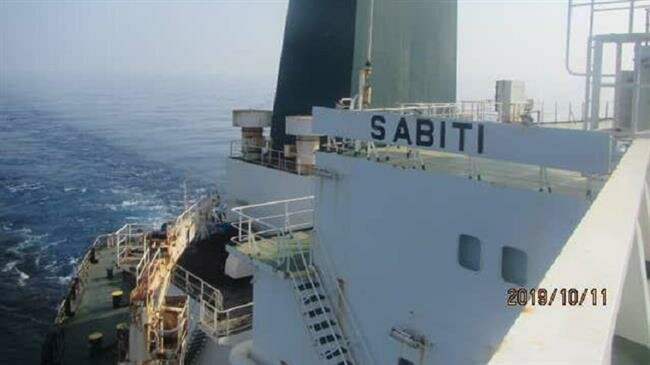Iranian oil tanker hit by two blasts in Red Sea

TEHRAN - In what Tehran calls a "dangerous adventure", two separate explosions, possibly caused by missile attacks, hit an Iranian oil tanker operated by the National Iranian Tanker Company (NITC) near the Saudi port city of Jeddah.
According to a statement by the NITC, the explosions took place some 60 miles from Jeddah early Friday.
The explosions hit the vessel’s hull, causing heavy damages to the ship’s two main tanks, which resulted in an oil spill in the Red Sea.
The spill is currently stopped, according to officials.
According to IRNA, the missiles hit the right side of the tanker’s hull, creating holes measuring 50-to-150 centimeters.
The NITC said the tanker is heading toward the Persian Gulf with a low speed.
Technical experts are currently investigating the cause of the explosion. They believe it was a "terrorist attack", unnamed sourced told the Iranian Students News Agency (ISNA).
The statement by the NITC said the tanker, named Sabiti, was hit by two separate explosions at 5:00 and 5:20 am Friday, probably after being struck by missiles.
The NITC said the crew members were currently safe and none of them has been harmed in the explosions.
The tanker is currently in a stable condition, the statement added.
The NITC later dismissed the reports that the vessel had caught fire, according to SHANA, a new agency run by the Oil Ministry.
Iranian Foreign Ministry spokesman Abbas Mousavi described the attack as “a dangerous adventure”, warning that all the responsibilities fall on those behind it.
“The investigations conducted by the National Iranian Tanker Company indicate the Iranian tanker has sustained damages after being targeted twice, at half-hourly intervals, from a place near its shipping route in the east of the Red Sea,” Press TV quoted Mousavi as saying.
Expressing concern about the maritime pollution caused by the massive oil spill in the region after damages inflicted on the vessel, he said, “All the responsibilities for the act, including the extensive environmental pollution in the region, fall on those behind the dangerous adventure.”
He also noted that a probe is being conducted on the details of the attack and those behind it, and the results will be announced once it's done.
The NITC dismissed media reports that the oil tanker was hit by missiles fired from Saudi Arabia, IRNA reported.
Chinese Foreign Ministry spokesman Geng Shuang said Beijing hoped the relevant parties would work together to uphold peace and stability in region, Reuters reported.
The director of the Asian Bureau of the Russian Foreign Ministry also said the necessary investigations about causes of the explosions are underway, suggesting it is necessary to refrain from immediate conclusions.
“Investigations are underway and there is still no evidence for talking about involvement of any side (in the incident),” Zamir Kabulov said, according to the Persian-language page of Sputnik.
Earlier in the day, the U.S. Navy’s Bahrain-based Fifth Fleet announced it is aware of media reports about the blast but had no further information.
“We are aware of the reports but we don’t have any further information,” a spokesman said.
The blasts caused oil prices to jump by over 2 percent, media reports said.
The explosions came a few months after Iranian oil tanker Happiness-1 faced “engine failure” and lost its control with 26 on board off the Red Sea port of Jeddah, and was later transferred to the port city for maintenance.
According to Iranian officials, the incident had occurred on April 30 while Happiness I was on its way to the Suez Canal, and that water had leaked into the tanker’s engine room.
The Saudis refused to let the vessel leave and demanded that Iran pay $200,000 a day for maintaining the vessel in the port, some $10 million in total. It was finally released on July 20 and returned home.
Also in June, two large tankers were hit by explosions in the Sea of Oman. The Marshal Islands-flagged Front Altair and the Panama-flagged Japanese-owned Kokuka Courageous were hit in suspected attacks in the Gulf of Oman.
At that time, Iranian rescue workers rushed to the assistance of two tankers hit by the unspecified accidents in the Sea of Oman, transferring all of their 44 crew members to its southern shores.
MJ/PA
Leave a Comment